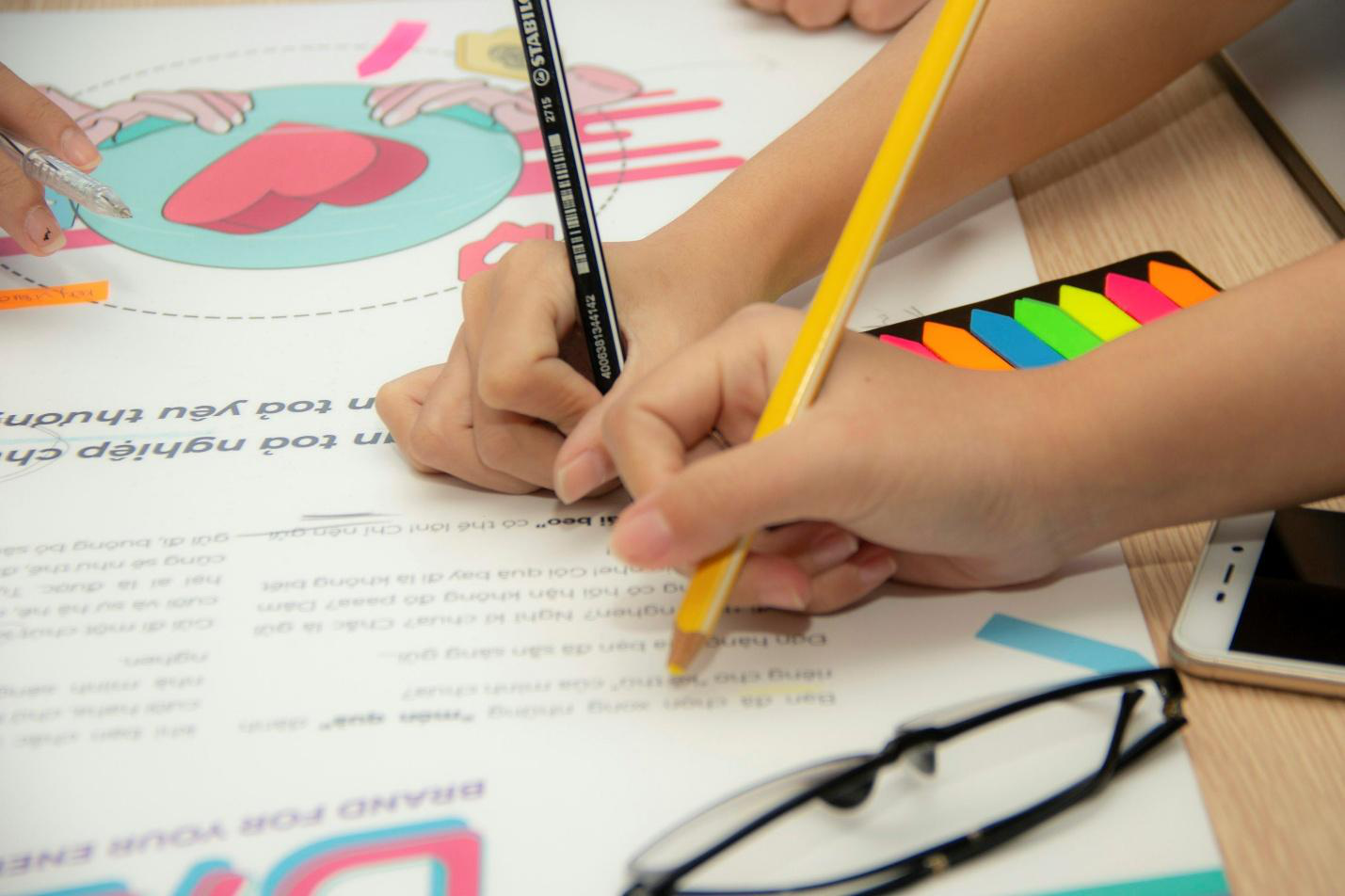Emotional intelligence is the ability to understand and manage emotions, both in oneself and others. For children with special needs, developing emotional intelligence can improve their social interactions, decision-making, and overall well-being. This guide provides practical guidance on teaching emotion recognition, self-regulation, and empathy to children with disabilities. You can use these strategies provided by our NDIS-approved play centre as a parent, caregiver, or professional working with special schools, allied health organizations, or childcare centres in Melbourne Western Suburbs.
Teaching Emotion Recognition
Emotion recognition is about helping your child identify and name their feelings and those of others. Children with special needs, such as autism spectrum disorder or intellectual disabilities, may find it hard to notice emotions through facial expressions, body language, or tone of voice. You can support them by breaking down emotions into clear, manageable steps.
Start by introducing basic emotions like happy, sad, angry, and scared. Use visual aids, such as pictures or flashcards showing faces with different expressions. For example, show a smiling face and say, “This person is happy.” Then, ask your child to point to the “happy” face when you describe a situation, like “You got a new toy.” Practice this daily, using real-life examples, such as how they feel when they play with friends or when a routine changes. Repetition helps them connect emotions to specific situations. For instance, if your child is excited during a play session in Melton, point out their smile and say, “You’re happy because you’re having fun.”
Next, use social stories to show how emotions appear in different contexts. A social story might describe a child feeling sad because they lost a game and explain how their face looks (e.g., frowning) or what their body does (e.g., slumping). Read these stories together and discuss what the character feels. You can create these stories yourself, focusing on situations your child experiences, like attending a play centre in Werribee. For example, a story could describe a child feeling nervous about trying a new activity and how they overcome it by participating.
Role-playing is another effective method. Act out emotions with your child, exaggerating facial expressions or gestures. For instance, pretend to be angry by crossing your arms and using a stern voice, then ask your child to name the emotion. Switch roles so they can practice showing emotions too. This builds their ability to recognize emotions in themselves and others. You can practice this at home or during visits to a childcare centre in Caroline Springs, where staff can reinforce the activity.
Technology can also help. Apps designed for children with special needs often include games that teach emotion recognition. These apps use interactive activities, like matching faces to feelings, to make learning engaging. Check with allied health organizations or special schools in Truganina for recommendations on apps that suit your child’s needs. Some apps allow you to customize scenarios, making them relevant to your child’s daily life.
Finally, involve your child in group activities, such as sensory play, where they can observe and discuss emotions with peers. These settings, available in Melbourne Western Suburbs, provide opportunities to practice recognizing emotions in a social environment. For example, during a group activity, a facilitator might point out a peer’s happy expression when they complete a task, helping your child make connections. By consistently using these methods, you can help your child understand emotions over time, which is essential for their social growth.

Supporting Self-Regulation
Self-regulation is the ability to manage emotions and behaviours, especially in challenging situations. For children with special needs, self-regulation can be difficult due to sensory sensitivities or difficulty processing emotions. You can help your child develop this skill through structured strategies that promote calmness and control.
Begin by creating a predictable environment. Children with disabilities often feel overwhelmed when routines change. Set up a daily schedule with clear activities, like playtime, meals, and rest. Use visual schedules with pictures to show what comes next, such as a picture of a swing for playtime at a sensory playground. This helps your child know what to expect, reducing anxiety that can lead to emotional outbursts. For example, a caregiver in Melton can use a schedule to prepare a child for a transition to a play session.
Teach calming techniques that your child can use when upset. For example, show them how to take deep breaths by inhaling for four seconds, holding for four, and exhaling for four. Practice this when they’re calm so they can use it during stressful moments. You can also introduce sensory tools, like stress balls or fidget toys, which are often used in play centres in Werribee. These tools help your child focus and calm down, especially during overwhelming situations.
Another strategy is to identify triggers that cause emotional reactions. For instance, if loud noises upset your child, note when and where this happens, like during a busy play session in Caroline Springs. Work with caregivers or allied health professionals to create a plan, such as using noise-cancelling headphones or scheduling quieter activities. Knowing triggers allows you to prepare your child in advance, like discussing what to expect before visiting a childcare centre.
Positive reinforcement is key. When your child manages their emotions, praise them specifically, like “You did a great job staying calm when the room got loud.” Offer small rewards, such as extra playtime at an NDIS play centre in Truganina, to encourage them to keep practicing. This builds their confidence in handling emotions and motivates them to try again.
You can also use structured activities to teach self-regulation. For example, one-on-one support sensory play sessions, available in Melbourne Western Suburbs, allow your child to practice calming techniques with a trained professional. These sessions provide a safe space to learn how to manage emotions while engaging in activities like climbing or sensory tasks. By combining these strategies, you can help your child gain control over their emotions, making daily challenges easier to handle.

Building Empathy
Empathy is the ability to understand and share the feelings of others. For children with special needs, developing empathy can improve their relationships and social skills. You can teach empathy through practical activities that focus on perspective-taking and kindness, tailored to your child’s abilities.
Start by talking about other people’s feelings in everyday situations. For example, if a sibling is crying, say, “Your brother is sad because he dropped his toy. How can we help him feel better?” This prompts your child to think about others’ emotions. Use simple language and repeat these discussions often to reinforce the concept. You can practice this during playtime in Melton, where your child interacts with peers.
Modelling empathy is important. Show your child how you respond to others’ feelings. For instance, if a friend is upset, you might say, “I’m going to give them a hug because they’re feeling sad.” Then, explain why you did it. Your child learns by watching your actions, so demonstrate kindness regularly, whether at home or in a childcare centre in Werribee.
Use books or videos to teach empathy. Choose stories with characters who face emotional challenges, such as feeling left out. After reading or watching, ask questions like, “How do you think the character felt? What would you do to help?” This helps your child practice thinking about others’ perspectives. Special schools or allied health organizations in Caroline Springs may have recommended resources for this.
Role-playing can also build empathy. Pretend to be a character in a story or a friend who’s upset, and ask your child to respond. For example, say, “I’m sad because I can’t find my Favorite toy. What can you say to help me?” Guide them to offer comforting words or actions, like suggesting they help look for the toy. This practice makes empathy feel concrete and can be done during visits to a play centre in Truganina.
Group activities, like inclusive sensory play west programs, are great for practicing empathy. In these settings, your child interacts with peers, learning to share, take turns, and notice others’ feelings. For example, during a group activity in Melbourne Western Suburbs, your child might see a peer struggling with an activity and offer help, guided by staff. These interactions build empathy in real-world settings.
Finally, celebrate small acts of kindness. If your child shares a toy or comforts a friend, praise them, saying, “That was kind of you to help your friend feel better.” This encourages them to keep showing empathy. Over time, these strategies help your child understand and care about others’ feelings, strengthening their social bonds.

Addressing Common Challenges
Children with special needs may face unique challenges in developing emotional intelligence, such as sensory sensitivities or communication difficulties. You can address these by adapting strategies to your child’s needs. For example, if your child struggles with verbal communication, use visual cues or sign language to teach emotions. If sensory overload is an issue, choose quiet, structured settings like an NDIS-approved play centre in Melton for practice.
Another challenge is inconsistency in progress. Emotional intelligence develops slowly, and setbacks are normal. Keep practicing the strategies above, and consult with allied health organizations or special schools in Werribee for additional support. They can provide professional guidance, such as through therapeutic sensory play, to address specific challenges.
You should also consider your child’s unique strengths. For instance, if they enjoy sensory activities, use sensory play disability support programs in Caroline Springs to teach emotional skills. These programs combine fun with learning, making it easier for your child to engage and progress.
Practical Tips for Parents and Caregivers
As a parent or caregiver, you play a key role in fostering emotional intelligence. Be patient, as progress takes time. Practice the strategies daily, even for a few minutes, to build consistency. For example, spend five minutes discussing emotions during dinner or playtime in Caroline Springs.
Involve your child in decision-making to build confidence. For instance, let them choose between two activities at a sensory playground in Truganina. This teaches them to consider their feelings and make choices. Also, communicate with other caregivers, such as those at special schools, to share progress and challenges.
Keep records of what works. If a calming technique like deep breathing helps, note it and share it with professionals. This helps everyone support your child effectively. Finally, take care of yourself. Supporting a child with special needs can be demanding, so seek support from allied health organizations or parent groups in Melbourne Western Suburbs.

Building a Brighter Future for Your Child
Helping your child with special needs develop emotional intelligence equips them for stronger social connections and personal growth. By focusing on emotion recognition, self-regulation, and empathy, you provide them with tools to manage their emotions and form meaningful relationships. These skills require time and patience, but consistent effort will lead to progress. Use visual aids, role-playing, and group activities like sensory play to keep learning engaging.
Partner with professionals at Sensory Play Centre for one-on-one support sensory play sessions, offering person centred care tailored to your child’s unique needs. During school breaks, enrol them in school holiday sensory programs in Melbourne Western Suburbs to practice these skills in a fun, inclusive environment. Most programs, except birthdays and private hire, align with NDIS funding, ensuring accessibility for families
Call now to find out more!
